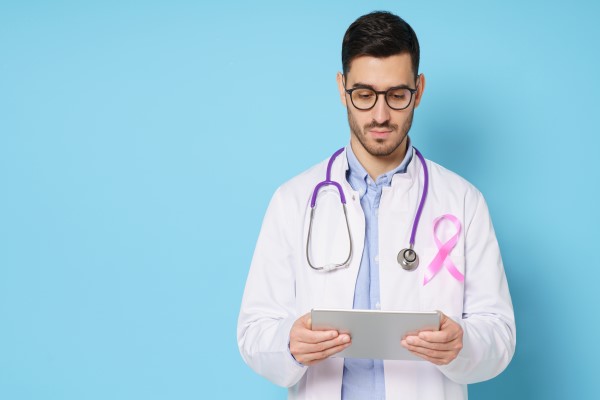Questions to Ask at Your First Oncology Appointment

The field of oncology focuses on the treatment of cancer patients. If you have this disease, you need a doctor that you know will give you the right care. When you begin meeting with your doctor, make sure you come prepared to find out more about the treatment process. The more knowledge you have, the more likely you are to have peace of mind and overcome the disease.
What the oncologist does
Like any physician, someone in oncology always has their patients’ well-being in mind. The oncologist will review the patient’s medical history and current symptoms. The doctor can then determine the most effective course of treatment. This could be surgery to remove a malignant tumor, radiation therapy or chemotherapy. This doctor also prescribes any medication the person needs. After treatment, the oncologist will follow up with the patient.
Ask about the outlook
Cancer comes in many forms. This disease can affect tissue and organs in just about any part of the body. There are also various levels of severity with each type of cancer. While treatments are available, some cancers have a low survival rate. With other varieties, the outlook is positive and comes with a high chance of a full recovery.
Upon meeting with the oncologysstaff the first time, patients should ask the doctor what the probability of beating the disease looks like. This will not only depend on the type of cancer the person has but its stage as well. Patients can expect the doctor to be open. Whatever the response is, the doctor will express a determination to achieve the most positive outcome possible.
Ask oncology doctors about how to treat it
Cancer is not curable, but with the right approach, the oncology doctor can manage many types. Initial meetings with the doctor should revolve around a treatment plan. It is important for the patient to understand what is in store. The type of treatment that a patient will have will help the person prepare for the coming weeks and months.
Ask about what limitations the patient will have
Someone with cancer will worry about their daily life and routine. The person will be stressed about whether they can continue to work and enjoy regular activities. Early visits to the oncology department can include talks about what the patient should and should not do before and during treatment. Many patients do not have to significantly alter their quality of life. The doctor may also discuss how the patient can get emotional support during this time.
Take comfort to know you can make it through this challenge
Learning about a cancer diagnosis does not have to be a death sentence. You can continue to live a full and healthy life, especially when you work with qualified oncology team members. Make an appointment with your oncologist today. Come to the office with these questions so that you can move forward feeling good about your treatment. You can have the peace of mind you need to know that your care is in capable hands.
Get more information about Lindenberg Cancer & Hematology Center in Marlton at https://lindenbergcancer.com.
Check out what others are saying about our services on Yelp: Read our Yelp reviews.
Recent Posts
A surgical oncologist helps diagnose and treat cancer using advanced procedures and often works closely with medical and radiation teams to coordinate care. Many patients hear the term after an abnormal scan, biopsy, or referral, and want a clear explanation of what this specialist does. Understanding how this specialty fits into cancer care can make…
Getting diagnosed with ovarian cancer is overwhelming to say the least, and many patients leave the doctor’s office thinking of questions they wish they had asked. Fortunately, you can bring these questions to your next appointment with the oncologist. Patients are encouraged to ask any questions they have to better understand their diagnosis, explore treatment…
Leukemia treatment aggressively targets cancer cells, but healthy cells can also be affected, leading to side effects. An oncology team can prevent problems early and ease symptoms fast. Clear expectations and communication help patients stay safer and more comfortable during care. Many side effects remain manageable when patients report their symptoms early, and supportive care…
Hematologic disease treatment often begins long before a formal diagnosis, because the earliest warning signs appear in everyday life. Fatigue, easy bruising, or frequent infections may not seem serious at first, yet they sometimes indicate that the blood, bone marrow, or lymphatic system needs attention. Understanding which symptoms matter, how long they last, and when…


